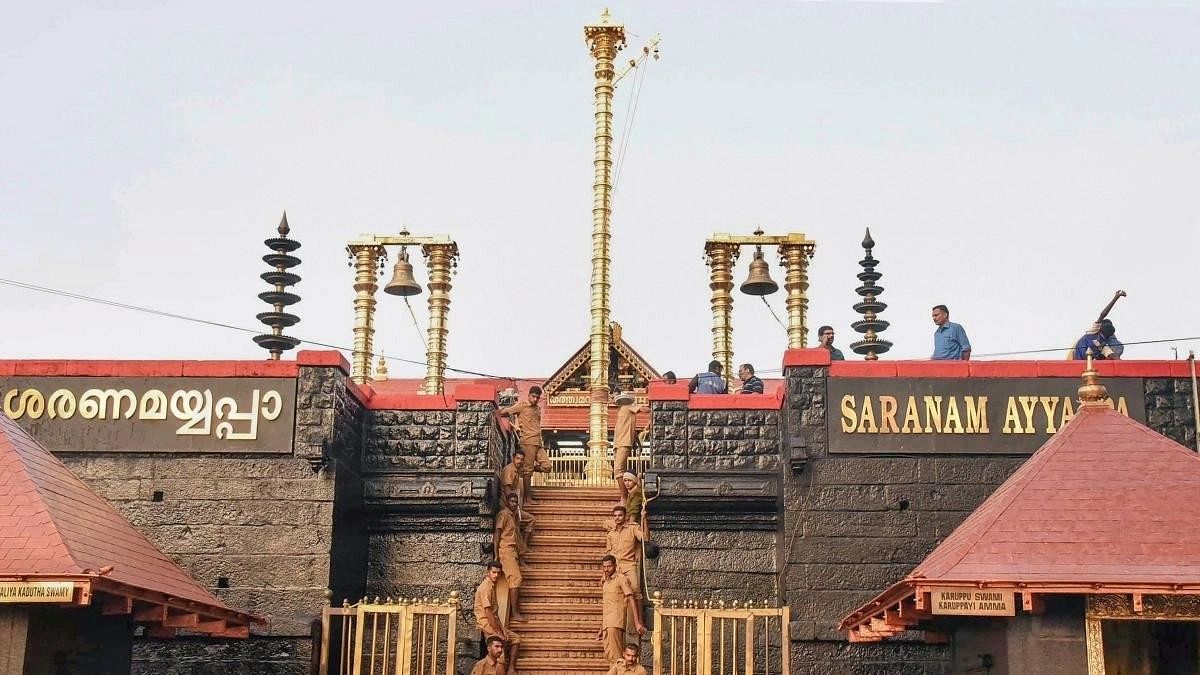
The Lord Ayappa temple at Sabarimala.
Credit: PTI File Photo
Thiruvananthapuram: Amidst heightened tensions over the 'contaminated' laddus in Tirupati, Sabarimala temple's prasadam or 'aravana' has also come into the limelight for containing 'high levels' of pesticide. The 'aravana' will now be converted into manure.
As many as 6.65 lakh containers of 'aravana' of Sabarimala Ayyappa temple in Kerala were left unused over the past one year following a complaint that the pesticide level in the cardamom used for its production was higher than the permissible level.
Though the 'aravana' was later found to be safe for consumption, the Travancore Devaswom Board that manages the temple decided to dispose of the stock worth around Rs. 5.5 crore.
However, disposing of the 'aravana' in large quantities posed a range of challenges for the authorities. The options of disposing of it in the forest regions faced opposition from the authorities.
Though various other options were considered, TDB wanted to ensure that the prasada is disposed of in a scientific manner without hurting sentiments of devotees. Hence tenders were floated for scientific disposal of the 'aravana'.
TDB president P S Prasanth told DH that Kerala-based firm Indian Centrifuge Engineering Solutions (ICES) won the tenders and were awarded the work.
They had proposed to scientifically convert the 'aravana' as manure after taking it to their facility in Hyderabad. Initially it will be taken to their facility at Kottayam in Kerala soon and from there it would be taken to Hyderabad. TDB officials will ensure the scientific disposal of 'aravana', he said.
'Aravana', which is made of rice and jaggery, is one of the major sources of income for the hill shrine. During the last pilgrimage, the revenue from 'aravana' sale was Rs. 147 core, which was around 40 percent of the temple's total revenue.
ICES was earlier in the news for installing bio-toilets at Ayodhya during the Ram temple consecration.